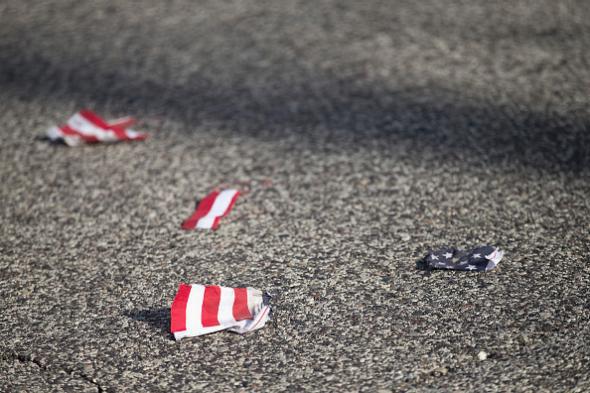Among the many frustrating themes of America’s post-Ferguson year of high-profile police brutality has been the sense that history has lost its momentum—that when it comes to deep racial issues of inequality and bias, the United States is no better off than we were decades ago despite outward symbols of progress like the election of the first black president. A related problem was that this was all happening in a country where many (mostly white) observers believed there was no problem, that America’s racial debt had been paid in full by the legal changes of the MLK civil rights era. (For examples of that way of thinking, see Chief Justice John Roberts’$2 2007 assertion that the best way to end racial discrimination was to eliminate any mention of race as a factor in public policy decisions, or the reaction of many commentators to Ta-Nehisi Coates’ May 2014 piece about the possibility of reparations.)
But! There’s been some good news on that front. For one, as mentioned in the piece by Slate’s Jamelle Bouie linked above, more Americans in public opinion polls are starting to acknowledge that race relations are still a problem. Moreover, the Washington Post reports Wednesday, more Americans are starting to tell pollsters that racial inequality is something we need to actively address:
The Post poll found 60 percent saying the nation needs to continue making changes to give blacks and whites equal rights, while 37 percent say those changes have already been made. The findings mark a shift from a 2014 Pew Research Center poll asking the same question. Back then, prior to Ferguson, 46 percent said more changes were needed to guarantee equal treatment.
That view, the Post says, is now a majority belief not only among Americans as a whole but among 53 percent of white Americans specifically.
